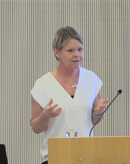Investigation, prosecutions and adjudication of waste crime
Selected national cases on prosecuting waste crimes - Czech Republic
In the following section, selected case law from different EU Member States will be presented, highlighting both challenges and positive results of the prosecution of waste offences.
The facts of the cases and the prosecution will be briefly described, as well as the sanctions imposed - to enable a comparison - and the reasons on which the judgments were based.
Czech Republic
-
In January 2019, two Malaysian citizens were arrested at Prague airport on their way from France to Vietnam with 18 kg (about 70,000 pieces) of glass eels in their luggage. Further investigations revealed that one of them was also acting as a driver and coordinator of couriers within an organised group of perpetrators and had them fly with the contraband from various airports in Europe.
As part of the organised group was prosecuted in other EU countries, the investigation relied on mutual legal assistance from the Czech, German and Swiss prosecutors to prove the aggravating circumstance of "the crime being committed by organised groups operating in several states".
The defendants were sentenced to 30 and 24 months in prison and a fine of EUR 20,000 for smuggling. The sentence is not yet final. - In another Czech case, a taxidermist was sentenced to 2 years conditional imprisonment for possession of the highly dangerous poison 'Carbofuran'. Despite an EU-wide ban on the sale of this substance, there is still a lot of this poison in the possession of Czech citizens. Every year some 15 to 20 cases of poisoning of wild animals, including protected species, are registered in the Czech Republic. Poisoning cases often pose a challenge to law enforcement authorities: on the one hand, establishing the link between the poisoned baits and the people who laid or planted them, and on the other hand, due to the lack of general prioritization of these cases. In this case too, the act of laying the poisoned baits could not be proven, although the perpetrator, as a taxidermist, had a clear motive.


Investigation, prosecution and adjudication on waste crime
Kristina Persson
Kristina Persson
Click here to take the quiz to this e-presentation.